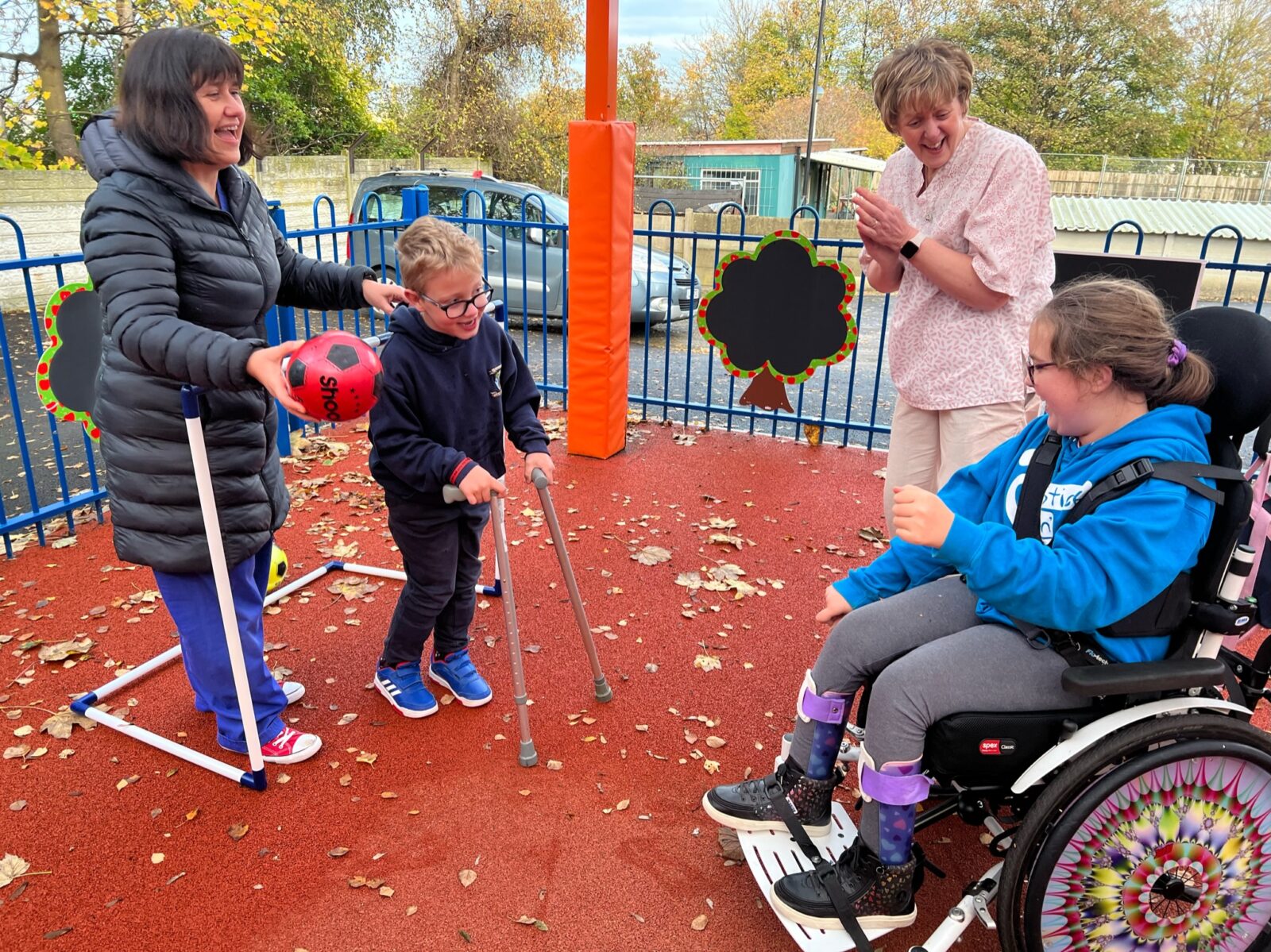This page contains lots of information useful to grant partners.
You might also find our FAQ’s page handy, or you can get in touch.
Save your grant offer email somewhere safe. This tells you how much you were awarded, what you told us you’d spend it on, and any conditions you have to meet.
When you submit an application, you’ll be asked if you accept the terms and conditions of the grant programme you’re applying for – it’s worth keeping hold of these too, as a reminder.
It’s also important to keep good records after your grant has started. We might ask you to show us proof of:
- The number of people/volunteers/groups you have worked with
- What you’ve spent on salaries
- HR and employment records
- Receipts for any items you have spent £250 or more on.
We can’t pay any grant monies to you without proof of your bank account details. You should have provided this at application stage, but as a reminder we need to see a copy of a bank statement dated within the last three months and we need to know who your banking signatories are.
If there are conditions attached to payment of your grant, we can’t usually pay you any monies until you’ve shown us those conditions are met.
You can contact us at any time to discuss your project, either by phone 01606 330607 or at grants@cheshirecommunityfoundation.org.uk. It’s especially important to do this if there’s something you have to change about your project.
Our donors love to come and see the projects they’re supporting. Some projects may also be selected for random visits as part of our audit process, where we may want to see receipts and invoices retained, demonstrating spend of your grant as well as discussing the project and its success.
Many of the grants we fund are for the salaries of staff. We need to see:
- The final job description and/or person specification
- If this is a new post, evidence that it’s been advertised externally. The advert should state that: ‘This post is supported by Cheshire Community Foundation”. If you would like to use our logo, you can find guidelines below.
For advice on recruitment or other HR issues, ACAS is a great place to start.
If you think you need to make a change to how your project is going to run, please let us know as soon as possible.
These are the sorts of things we need to know about:
- Recruitment delays or staffing problems
- Changes to the activities or services provided. You don’t need to tell us about every small change, but if in doubt, it’s best to let us know.
- Changes to your budget (i.e. if you want to spend some of the grant money differently, or if you are likely to have an underspend).
- Changes to what you’ll be able to report on at the end of your grant.
Below are some examples of the sorts of things projects often measure, to help them report on the success of their project at the end of their grant. Gathering the data as you go makes it a lot easier.
In your application form you will have chosen the indicators and outcomes you think your project can report on.
| Outcomes | Qualitative and Quantitative indicators |
|---|---|
| Improved access to services and support | Number of people reporting better access to services or support. |
| Improved aspirations for the future | Number of people reporting an increase in personal aspirations and goals. Number of people reporting increased self-esteem and confidence. |
| Improved mental health and wellbeing | Number of people reporting improved mental health or wellbeing. Number of people reporting a reduction of stress, anxiety and/or symptoms of depression. Number of people reporting increased resilience and/or self-care. Number of people reporting increased self-esteem and confidence. Number of people undertaking treatment/therapy to meet their needs. Number of people for whom the treatment/programme was successful or likely to be successful. |
| Improved physical health and wellbeing | Number of people reporting improved physical health or wellbeing. Number of people participating in sport, exercise and leisure activities. Number of people reporting that they are more physically active. Number of people undertaking treatment/therapy to meet their needs. Number of people reporting improvements in their diet, to be healthier and more balanced. Number of people for whom the treatment/programme was successful or likely to be successful. |
| Improved social networks | Number of people reporting improved social networks. Number of people reporting that they feel less lonely. Number of people reporting that they feel an increased sense of belonging in their community. |
| Increased interpersonal skills (social, communication and relationship skills) |
Number of people reporting increased interpersonal (social, communication and relationship) skills. Number of people reporting improved social networks. Number of people reporting that they feel less lonely. |
| Reduced social isolation | Number of people attending activity sessions. Number of hours of community activity provided. Number of people reporting improved social networks. |
| Reduced levels of loneliness for individual people | Number of people reporting that they feel less lonely. Number of people reporting improved social networks. Number of people reporting improved mental health or wellbeing. |
Top tips when measuring outcomes
Using the theory of change process in planning a project can help make sure your outcomes are SMART: specific, measurable, achievable, realistic and time-bound.
Through our grant-making, we seek to promote and support best practice in safeguarding.
For more information, visit the NSPCC, Thinkuknow
or for safeguarding adults The Ann Craft Trust
We ask you to let us know how your project went at the end of your grant, or at the end of each year of a multi-year grant. This is so that we can share learnings with other grant partners who may be able to build or draw from what you’ve done; to inform further grant-making on the issue you’ve worked on; and to help donors understand the difference their funds can make.
Your online end of grant form
You’ll find this in your grant offer email. We’ll remind you when it’s due. Sometimes we might ask for some interim information: if it’s a project responding to an issue which is changing quickly, or if you’re trying a new approach.
Decide who’s going to collect and record your data consistently before you start, and how this will be done. You will have chosen several indicators to report against in your grant application, so you’ll need to collect data to evidence these. You’ll also normally need to collect:
- Quantitative data (numbers) – how many people are taking part or using the service, achieved goals (e.g., employment, improved health).
- Qualitative data (stories) – feedback from users and volunteers, observed increase in skills, confidence etc.
- Learning – feedback from project participants, what went well, what would you do differently etc.
It’s best to collect information as you go, rather than leaving it all to the end (a great way to demonstrate to us and other funders that you have the skill to run a successful project).
We will always ask you for a story of someone who benefited from your project. This helps to bring your work to life with the real human impact of what you’ve achieved.
By completing an application form to Cheshire Community Foundation, we will use the personal data about you and other individuals named in your application to assess and administer your grant Personal data about your Board or management committee may also be used for identification.
When necessary, personal data collected through the application process will be shared with Cheshire Community Foundation, programme assessors and with other third parties, where the law permits or requires it.
Any photographs and commentary provided to support your application may include personal data relating to individuals supported by your project. These photos, logos and details may be used in promotional material created in relation to your application and may appear on our website and literature.
We will only use your information where we have a legal basis to do so, for example, to carry out our legitimate business interests to manage and promote our grants or to meet our legal or contractual obligations. By providing any personal data about another person, you are confirming that they understand how their data may be used and shared.
You have certain rights when it comes to your personal information. This includes rights to access and correct your information, and to erase, transfer, object to, restrict or take away consent around how we use your information. Please contact Cheshire Community Foundation if you or anyone named in your application has any concerns with the information being used publicly or if you wish to exercise any of these rights.
Please also see our Privacy Policy
We’re really proud to be supporting your work – so do shout about it! When it comes to promoting your project, please remember to state that it’s been supported by Cheshire Community Foundation. On social media, you’ll find us @CheshireCF on Twitter, Cheshire Community Foundation on LinkedIn and @cheshireCommunityFoundation on Facebook so do tag us in – we’ll be sure to like and share!
Cheshire and Warrington’s sector infrastructure organisations are also great gateways to promoting and sharing your project or opportunities with others. Warrington Voluntary Action, Cheshire East CVS and Cheshire West Voluntary Action.
Using our helpful hints and press release template, you will have the tools to spread the word and announce your grant. This template will allow you to input information on your project before you reach out to press contacts.
Please always use our correct logo (here)

